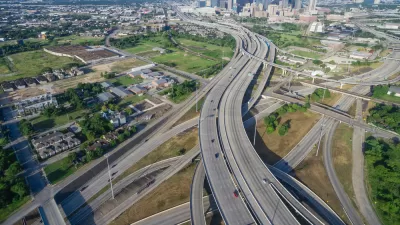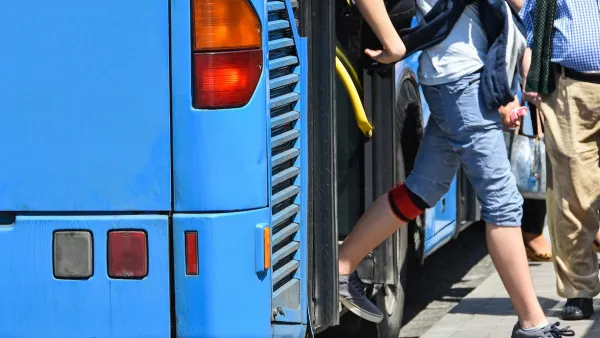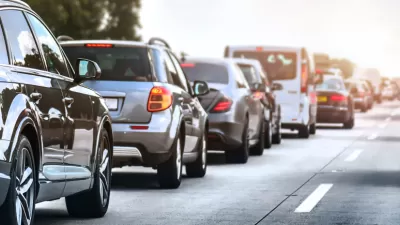Mobility as a Service (MaaS) relies on technology to streamline transportation and improve access. But apps are not going to be enough for people to leave their cars behind.

David Zipper takes a closer look at Mobility as a Service (MaaS) and its potential to shift people from driving to other more sustainable modes. "Boosters of the concept hail it as a means of weaning commuters off privately owned automobiles via technology platforms that allow them to easily book and plan trips across an array of urban transportation services—including transit, bikeshare, ride hail, e-scooters, and more."
The goal is admirable, says Zipper, but he challenges the notion that technology is a mobility solution more than just a tool. Apps can help travelers navigate transportation systems, but they cannot create accessible and robust mobility networks. For that, policy and planning need to address service and infrastructure issues.
Increased transit frequency, improved biking infrastructure, and higher driving costs provide incentives for people to look to alternatives to auto use. MaaS can bring a variety of modes together onto one platform, says Zipper. "But we should be realistic: Without supportive policies and investment decisions, the smartest MaaS technology in the world won’t be able to liberate cities from our reliance on automobility."
FULL STORY: There’s No App for Getting People Out of Their Cars

Planetizen Federal Action Tracker
A weekly monitor of how Trump’s orders and actions are impacting planners and planning in America.

The Simple Legislative Tool Transforming Vacant Downtowns
In California, Michigan and Georgia, an easy win is bringing dollars — and delight — back to city centers.

San Francisco's School District Spent $105M To Build Affordable Housing for Teachers — And That's Just the Beginning
SFUSD joins a growing list of school districts using their land holdings to address housing affordability challenges faced by their own employees.

In More Metros Than You’d Think, Suburbs are Now More Expensive Than the City
If you're moving to the burbs to save on square footage, data shows you should think again.

The States Losing Rural Delivery Rooms at an Alarming Pace
In some states, as few as 9% of rural hospitals still deliver babies. As a result, rising pre-term births, no adequate pre-term care and "harrowing" close calls are a growing reality.

The Small South Asian Republic Going all in on EVs
Thanks to one simple policy change less than five years ago, 65% of new cars in this Himalayan country are now electric.
Urban Design for Planners 1: Software Tools
This six-course series explores essential urban design concepts using open source software and equips planners with the tools they need to participate fully in the urban design process.
Planning for Universal Design
Learn the tools for implementing Universal Design in planning regulations.
Smith Gee Studio
City of Charlotte
City of Camden Redevelopment Agency
City of Astoria
Transportation Research & Education Center (TREC) at Portland State University
US High Speed Rail Association
City of Camden Redevelopment Agency
Municipality of Princeton (NJ)





























